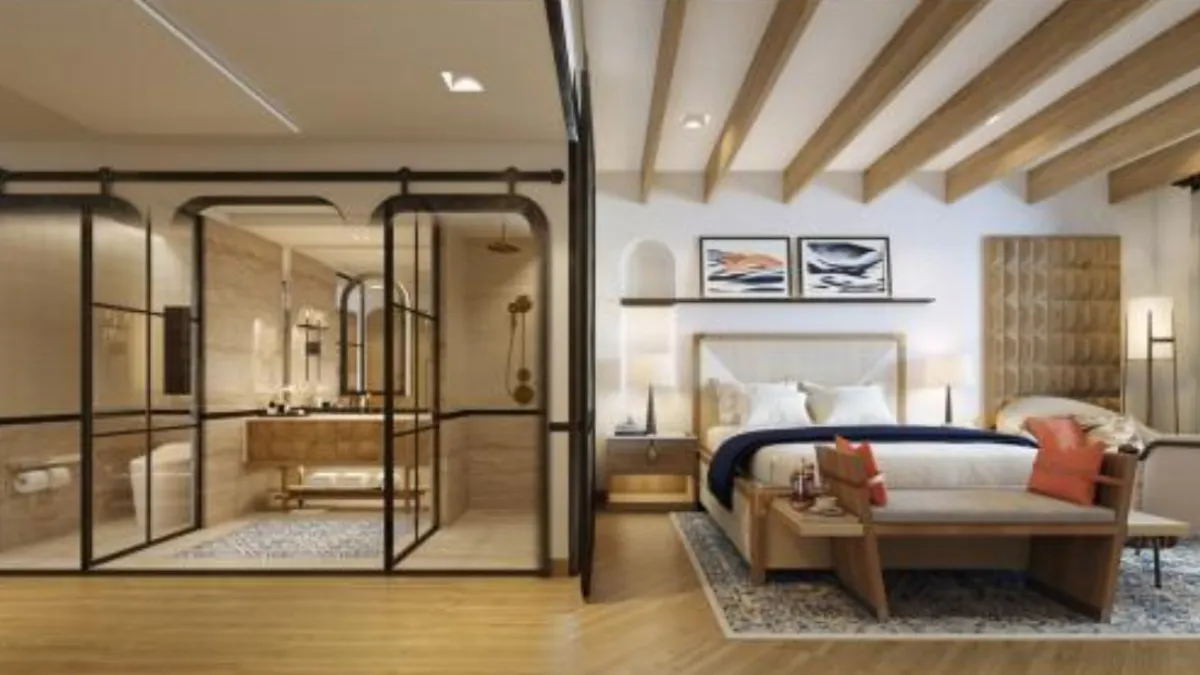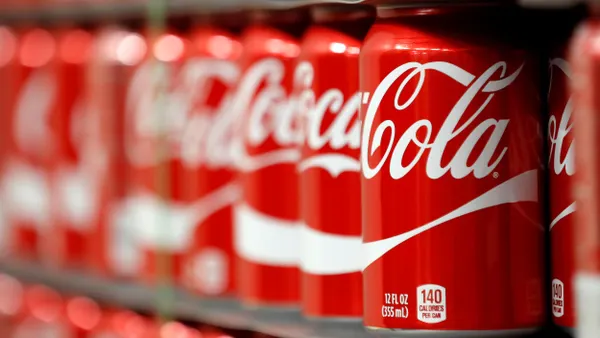Dive Brief:
- Newly released research points to the ways that hotel design, renovation and construction projects are being shaped by the coronavirus crisis.
- Architecture firm Leo A Daly's white paper states that hotel owners and developers will put a greater emphasis on health-related features such as high-performance ventilation systems, indoor/outdoor architecture and antimicrobial finishes to heighten guests' wellbeing and safety.
- This shift to health and wellness offerings will generate an influx of new and retrofit work for U.S. contractors in the near future, co-author Mark Pratt, vice president and global hospitality practice leader at Leo A Daly, told Construction Dive.
Dive Insight:
Plenty of new construction projects are coming, according to Pratt, but the first rush of jobs will involve replacing soft surfaces with hard, antimicrobial and antibacterial finishes. Additional jobs might involve ramping up outdoor seating, dining and work areas for guests.
“Contractors can expect a lot of retrofitting work needed immediately,” said the architect. “For example, a full-service Marriott or Hyatt with carpet in rooms will need solid flooring that feels and looks cleaner. Getting rid of shower curtains and going to glass doors is another consistent change."
He suggested that hospitality contractors put together "coronavirus retrofit packages" for various levels of hotels.
"Be proactive by taking a typical guest room and calculating how much and how long to change it, then propose it to hotels," he said.
Those retrofit packages might also cover flooring in hallways and public spaces, replacing countertops and built-ins with antimicrobial and antibacterial finishes, along with adding high-tech filters to HVAC systems. Materials typically used mostly in health are facilities and commercial kitchens — stainless steel, porcelain, solid surfaces, glass — will become common in hotels, so Pratt cautions construction companies to source vendors of those types of materials now.
“There’s probably going to be a shortage on antimicrobial or antibacterial materials, so contractors should figure out what they need to order early,” Pratt said.
The study predicts that air handling will be a main focus of pandemic-era hotel spaces and says that several types of air containment and sanitization systems used in hospitals will become more mainstream in hospitality. These systems include:
- Negative pressure air handlers.
- High-performance ventilation.
- Antimicrobial, antibacterial, and/or UV light sanitization.
- Outdoor air exchangers.
Guest rooms may borrow certain engineering features from the healthcare space as well, such as negative pressurization to prevent the escape of airborne pathogens under doors, and exhaust to the exterior via HEPA filter, it said.
Other high-tech systems and products that will become more commonplace include thermal cameras, automated systems such as door openers or room controls to reduce touch points and indoor/outdoor dining or gathering spaces with air curtains to moderate climates for guests. These types of climate-controlled outdoor living spaces have been a growing trend for years, but Pratt thinks hotels will begin including them even in colder places like the Northeast.
“Brands have been guiding this change of blurring the lines between inside and out,” Pratt said. “But we see the definition of even more public spaces including a curtain wall that opens them up to the outdoors and brings more fresh air inside. In general, there will be increased air movement and exchanges in all spaces bringing more outdoor air inside.”
It may take a while for subcontractors to catch up on demand for these types of products and technologies, he noted.
“The availability of qualified subcontractors could impact projects until the technology becomes more mainstream,” Pratt said. “Contractors should work with HVAC vendors to find out what lead times might be, but with proper planning, we don’t anticipate negative effects on scheduling. The technology for these air handling and automated systems has been available, it’s just becoming more relevant, so buy early.”














